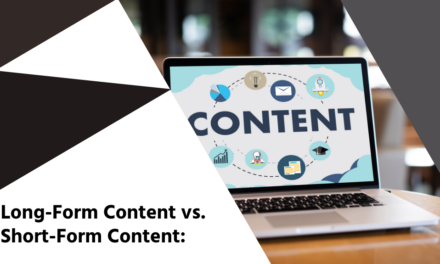Why Mobile Optimization is Crucial for SEO Success
In today’s digital age, having a strong online presence is crucial for the success of any business. With the majority of internet users accessing websites through their mobile devices, it has become imperative for businesses to optimize their websites for mobile devices. This is not only important for user experience but also for search engine optimization (SEO). In this article, we will discuss the importance of mobile optimization for SEO and why it is crucial for the success of your website.
First and foremost, let’s understand what mobile optimization means. Mobile optimization is the process of designing and formatting a website to ensure that it is easily accessible and user-friendly on mobile devices. This includes making the website responsive, which means that it can adapt to different screen sizes and resolutions. It also involves optimizing the website’s loading speed, as mobile users tend to have a shorter attention span and expect websites to load quickly.
Now, you may be wondering why mobile optimization is important for SEO. The answer is simple – search engines, particularly Google, prioritize mobile-friendly websites in their search results. This means that if your website is not optimized for mobile devices, it will not rank well in search engine results pages (SERPs). With the majority of internet searches happening on mobile devices, this can significantly impact your website’s visibility and traffic.
Moreover, Google has also introduced mobile-first indexing, which means that it primarily uses the mobile version of a website for indexing and ranking. This further emphasizes the importance of mobile optimization for SEO. If your website is not optimized for mobile devices, it will not be indexed properly, and as a result, it will not rank well in search results.
Another reason why mobile optimization is crucial for SEO is that it directly affects user experience. As mentioned earlier, mobile users have a shorter attention span and expect websites to load quickly. If your website is not optimized for mobile devices, it will take longer to load, and users are likely to leave your website and look for alternatives. This will increase your website’s bounce rate, which is a negative signal for search engines and can impact your website’s ranking.
Furthermore, a mobile-friendly website also improves user engagement and increases the chances of conversion. If a user has a positive experience on your website, they are more likely to stay longer, explore more pages, and potentially make a purchase or take the desired action. This, in turn, can improve your website’s conversion rate and ultimately contribute to your business’s success.
In addition to these factors, mobile optimization also plays a crucial role in local SEO. With the rise of voice search and location-based searches, having a mobile-friendly website is essential for businesses targeting local customers. A mobile-optimized website can help improve your website’s visibility in local search results and attract potential customers in your area.
In conclusion, mobile optimization is not just important for user experience, but it is also crucial for SEO success. With the majority of internet users accessing websites through their mobile devices, having a mobile-friendly website is no longer an option but a necessity. It not only improves your website’s visibility and ranking in search results but also enhances user engagement and increases the chances of conversion. Therefore, if you want your website to succeed in today’s digital landscape, mobile optimization should be a top priority.
Maximizing Your Website’s Mobile Potential: The Impact of Mobile Optimization on SEO

In today’s digital age, having a strong online presence is crucial for any business or organization. With the majority of internet users accessing websites through their mobile devices, it has become increasingly important for websites to be optimized for mobile use. This not only enhances the user experience but also has a significant impact on search engine optimization (SEO).
Mobile optimization refers to the process of designing and formatting a website to ensure that it is easily accessible and functional on mobile devices. This includes factors such as responsive design, page loading speed, and user-friendly navigation. With the rise of mobile usage, search engines like Google have also started prioritizing mobile-friendly websites in their search results. This means that having a mobile-optimized website is no longer just a matter of convenience, but it directly affects your website’s visibility and ranking on search engines.
One of the key benefits of mobile optimization is improved user experience. With the smaller screen size and touch-based navigation on mobile devices, it is essential to have a website that is easy to navigate and read. A mobile-optimized website adjusts its layout and content to fit the screen size of the device, making it easier for users to browse and interact with the site. This leads to a better user experience, which in turn can result in increased engagement and conversions.
Moreover, a mobile-optimized website also has a significant impact on website loading speed. With the limited processing power and internet speed on mobile devices, a website that is not optimized for mobile use can take longer to load, leading to a higher bounce rate. This means that users are more likely to leave the site if it takes too long to load, resulting in lost potential customers. On the other hand, a mobile-optimized website is designed to load quickly on mobile devices, providing a seamless browsing experience for users.
In addition to user experience, mobile optimization also plays a crucial role in SEO. As mentioned earlier, search engines like Google prioritize mobile-friendly websites in their search results. This means that having a mobile-optimized website can improve your website’s visibility and ranking on search engine results pages (SERPs). With a higher ranking, your website is more likely to be seen by potential customers, leading to increased traffic and potential conversions.
Furthermore, mobile optimization also affects local SEO. With the rise of location-based searches, having a mobile-optimized website is essential for businesses that rely on local customers. A mobile-friendly website with accurate and up-to-date location information can help improve your website’s visibility in local search results, making it easier for potential customers to find and contact your business.
Another important aspect of mobile optimization for SEO is the use of mobile-specific keywords. With the rise of voice search and the use of mobile devices for search queries, it is crucial to include mobile-specific keywords in your website’s content. These keywords are typically longer and more conversational, reflecting the way people search on their mobile devices. By incorporating these keywords into your website’s content, you can improve your chances of appearing in relevant search results.
In conclusion, mobile optimization is no longer just an option but a necessity for any website looking to maximize its potential. With the majority of internet users accessing websites through their mobile devices, having a mobile-optimized website is crucial for providing a positive user experience, improving website loading speed, and boosting SEO. By investing in mobile optimization, businesses and organizations can stay ahead of the competition and reach a wider audience, ultimately leading to increased traffic, engagement, and conversions.
The Power of Mobile Optimization: How it Can Boost Your SEO Rankings and User Experience
In today’s digital age, having a strong online presence is crucial for businesses to succeed. With the majority of internet users accessing websites through their mobile devices, it has become increasingly important for websites to be optimized for mobile use. Not only does this improve the user experience, but it also has a significant impact on search engine optimization (SEO) rankings.
Mobile optimization refers to the process of designing and formatting a website to ensure that it is easily accessible and functional on mobile devices. This includes factors such as responsive design, page loading speed, and user-friendly navigation. With the rise of mobile usage, search engines like Google have placed a strong emphasis on mobile optimization as a ranking factor. This means that websites that are not optimized for mobile use are likely to rank lower in search engine results pages (SERPs).
One of the main reasons why mobile optimization is crucial for SEO is because of the increasing number of mobile users. In fact, mobile devices now account for more than half of all internet traffic. This means that if your website is not optimized for mobile use, you are missing out on a significant portion of potential customers. Furthermore, Google has stated that they prioritize mobile-friendly websites in their search results, making it essential for businesses to have a mobile-friendly website to improve their SEO rankings.
Another important aspect of mobile optimization is page loading speed. With the fast-paced nature of the internet, users expect websites to load quickly, especially on their mobile devices. In fact, studies have shown that 53% of mobile users will abandon a website if it takes more than three seconds to load. This not only leads to a poor user experience but also negatively impacts SEO rankings. Search engines like Google consider page loading speed as a ranking factor, and a slow-loading website will be penalized in search results.
In addition to improving SEO rankings, mobile optimization also has a significant impact on user experience. A website that is not optimized for mobile use can be difficult to navigate, with small text and buttons that are hard to click on. This can lead to a frustrating user experience, causing visitors to leave the website and potentially never return. On the other hand, a mobile-friendly website with a responsive design and easy navigation will provide a positive user experience, leading to increased engagement and potentially higher conversion rates.
Moreover, with the rise of voice search, mobile optimization has become even more critical for SEO. Voice search is becoming increasingly popular, with more and more users relying on virtual assistants like Siri and Alexa to search for information. These voice searches are often done on mobile devices, and websites that are not optimized for mobile use will not rank well in voice search results. This means that businesses that do not have a mobile-friendly website are missing out on a significant opportunity to reach potential customers through voice search.
In conclusion, mobile optimization is crucial for both SEO rankings and user experience. With the majority of internet users accessing websites through their mobile devices, having a mobile-friendly website is no longer an option but a necessity. By optimizing your website for mobile use, you can improve your SEO rankings, reach a larger audience, and provide a positive user experience. In today’s digital landscape, businesses that neglect mobile optimization are at a significant disadvantage and risk losing potential customers to their competitors.










